Photochrom or photochrome prints are a type of color prints that were very popular around 1900, at a point in time when color photography was still in its infancy. These prints are created from black-and-white photographs, which explains the sometimes odd colors.
The photochrome process was mainly used to print postcards of cities and landscapes. There are however also portraits. The one below is labeled ‘Minnehaha’ even though that is the name of a fictional Native American woman. The name means ‘waterfall’ or ‘rapid water’ in Dakota.

Rounding up cattle is a tough job so the ‘grub pile’ is a well-deserved break.
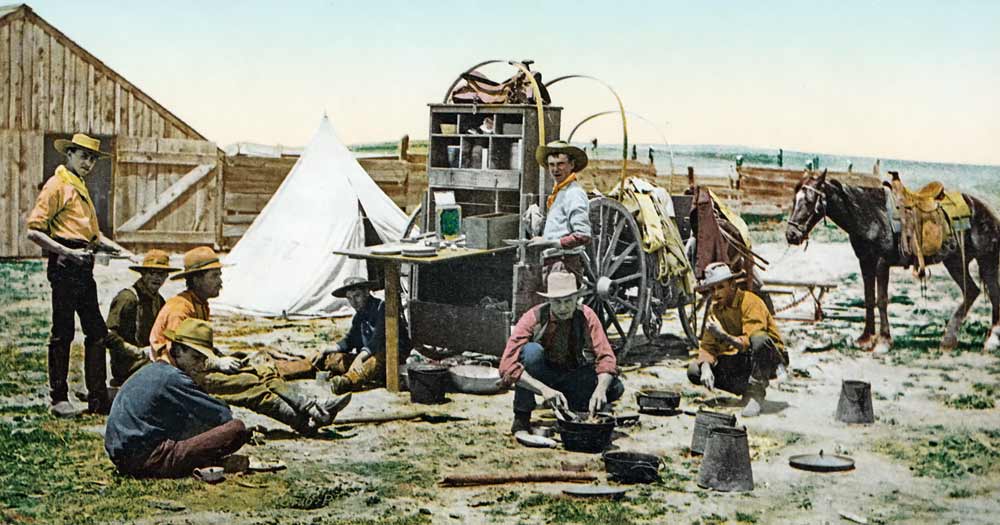
The Cascades Rapids were an area of rapids along the Columbia River. In 1896 the Cascade Locks and Canal were constructed to bypass the rapids. The paddle steamboat shown below probably used that canal. The rapids were submerged after the construction of the Bonneville Dam in the late 1930s.
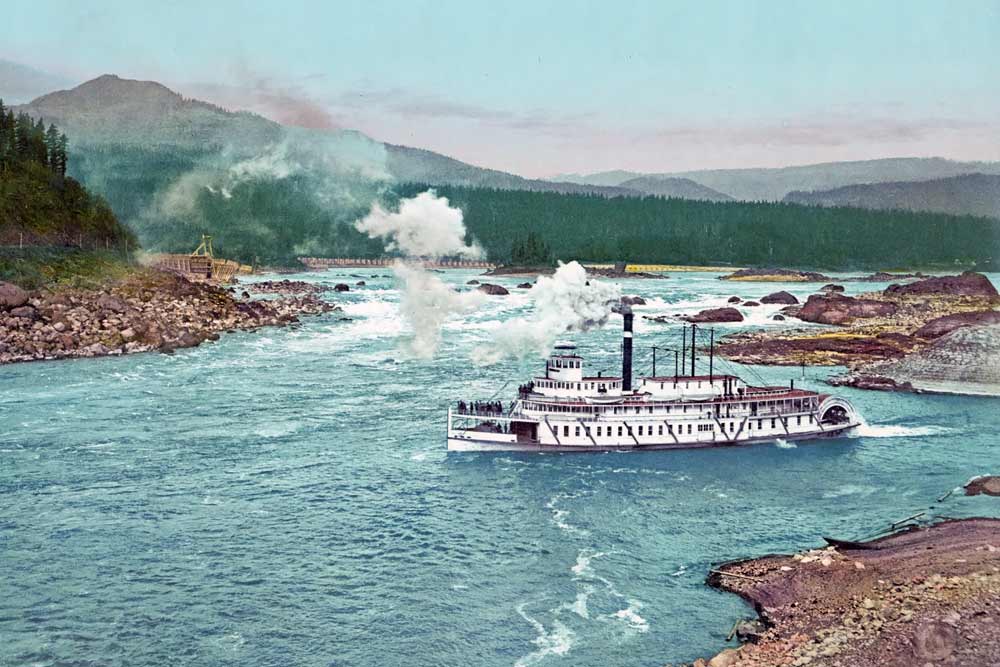
In Chicago rapid transit started to be built in the late 1880s. The Loop (historically Union Loop) is a 1.79-mile long circuit of elevated rail around Chicago’s downtown, which is now also known as the Loop.

The Soldiers’ and Sailors’ Monument in Cleveland commemorates the American Civil War. It was built in 1894.

The Biloxi Lighthouse was build in 1847 and electrified in 1927. It has survived numerous storms and hurricanes and is famous for the high percentage of female keepers who have kept it operational.
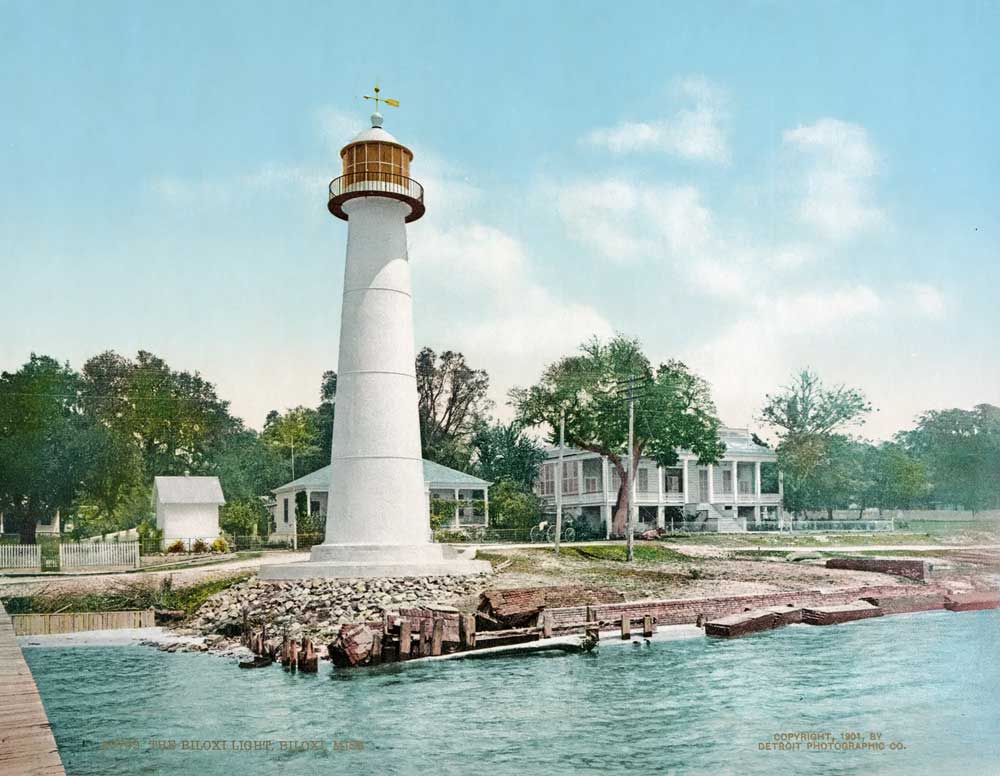
At Jackson Square in the French Quarter of New Orleans, Louisiana was made United States territory in 1803. The United States purchased the territory from France.
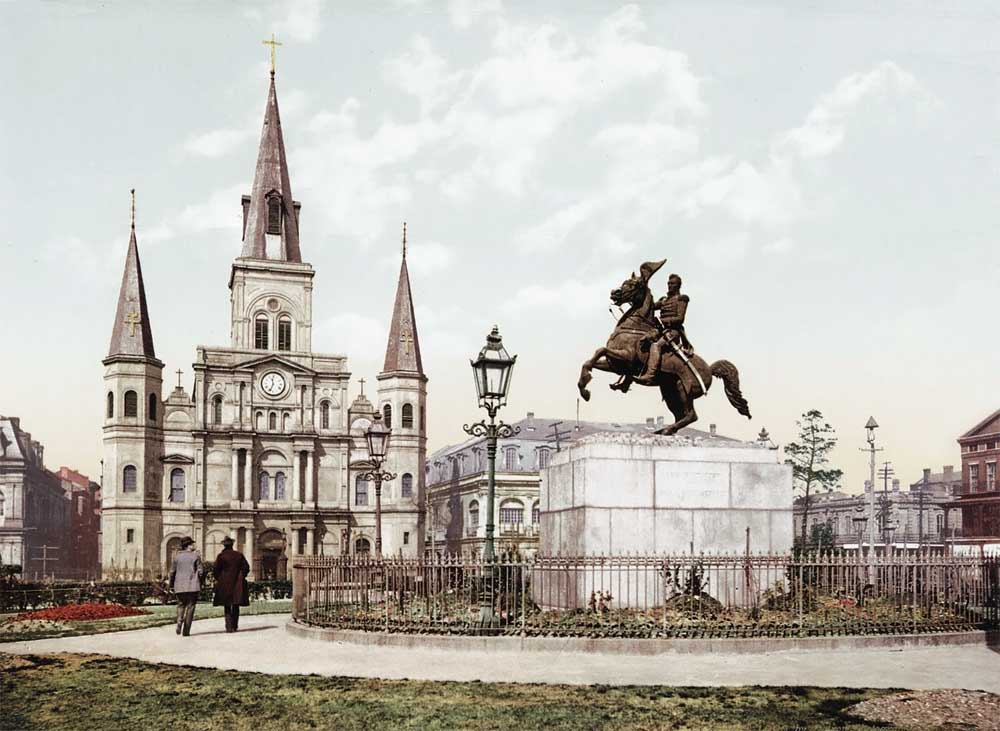
The Whirlpool Rapids Bridge crosses the international border between Canada and the United States around 1.2 miles downstream from Niagara Falls. It was opened in 1897.
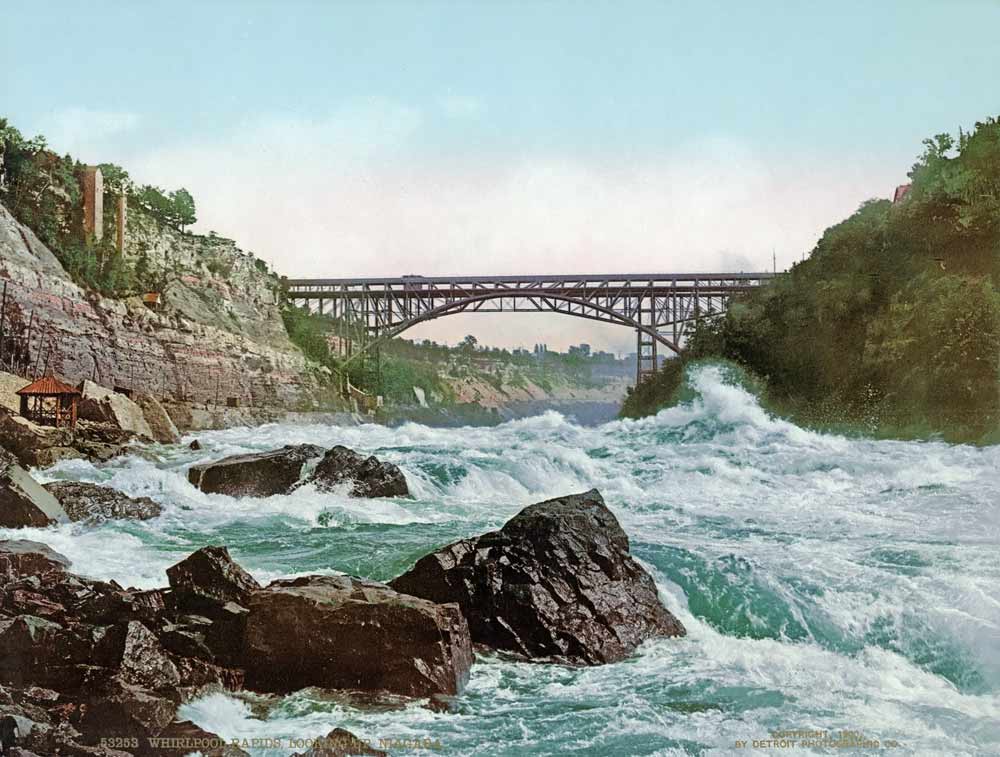
In the short story ‘Rip Van Winkle’ a man with the same name falls asleep in New York’s Catskill Mountains and wakes up 20 years later, having missed the American Revolution. This was supposedly his home.
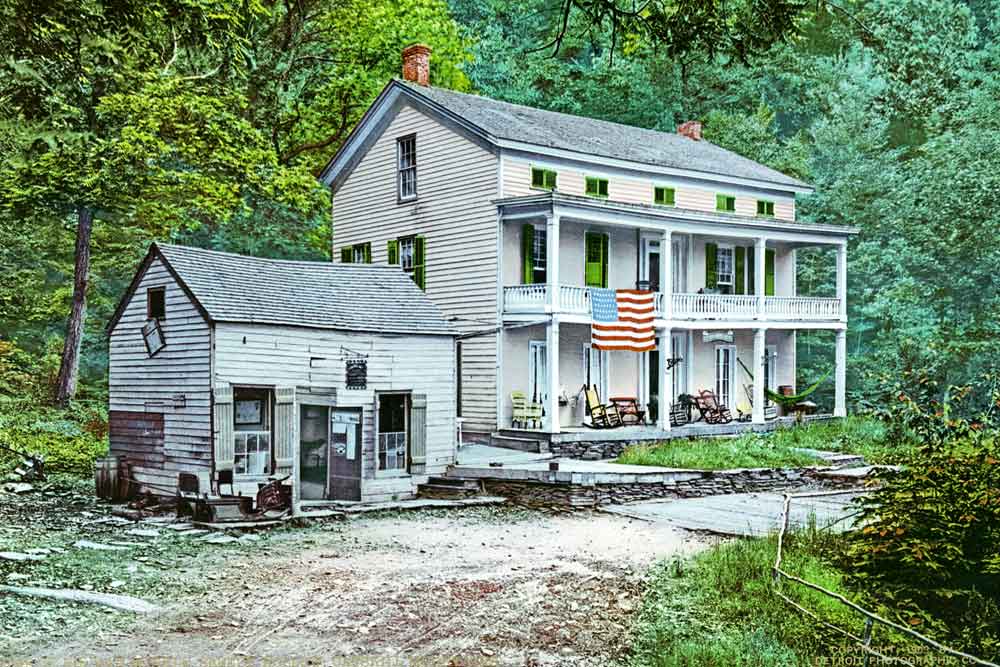
Coney Island in the southwestern part of the borough of Brooklyn served as a seaside resort for New Yorkers. By the late 19th century, a number of amusement parks had been built at the location.

The Hotel Alcazar was built in 1887 in Saint Augustine, Florida. It had a steam room, massage parlor, sulfur baths, gymnasium, a three-story ballroom, and the world’s largest indoor swimming pool. The hotel closed in 1932 and is nowadays the home of the Lightner Museum.

If you liked these pictures, check out additional photochroms of England, Ireland and the European continent.
